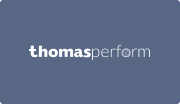Hiring the right talent has always been the focal point for recruiters. But selecting the 'right' hire for a business is now becoming more challenging due to the current labour market, in which job vacancies surpass the number of job seekers. The challenge is now magnified as it becomes increasingly difficult to single out candidates who would add value to the business from a highly competitive talent pool. One incorrect hiring decision can trigger an array of problems, quickly permeating the organisation and causing long-term effects.
According to a report by the Recruitment & Employment Confederation (REC), over a third of companies presume that their hiring mistakes have no financial impact on their business. However, the reality is contrary to this belief. The uncalculated costs of failing in hiring the right talent are high. A poor hire, particularly at the mid-manager level with a salary of £42,000, can cost a business more than £132,000. This unexpected expense accrues from training costs, loss of productivity, a dip in morale, halted projects, and other complications arising from a bad hire.
To steer clear of hiring decisions that lead to turnover and subsequent unplanned vacancies, employers need to accurately evaluate each candidate against the essential factors prioritised within the organisation, underlining the critical importance of hiring the right talent. In this blog, we will look at how to hire the right talent. Let’s dive in!
Strategically hiring the right talent with psychometric assessments
Psychometric assessments offer a different approach to evaluating candidates against expectations set by hiring managers and leaders within an organisation. By taking the additional insights they provide into consideration, employers can make more informed, more objective and more confident hiring decisions for their business.
So which type of assessment would be best suited to your hiring goals? Take a minute to evaluate if your current hiring process can effectively answer the following questions.
The growing challenge of defining the 'right' hire in a competitive job market
In an increasingly competitive job market, defining the 'right' hire poses a multitude of growing challenges. Talent scarcity exacerbates the difficulty, with a limited supply of qualified candidates possessing the requisite skills and experience.
The challenge is amplified by intensified competition, as more companies vie for this elite talent pool, leading to a scarcity of top-tier candidates. Complicating the matter further are prevalent skill gaps, a mismatch between the skills candidates hold and the ones jobs demand, causing potential mismatches during recruitment.
Moreover, retention concerns underscore the importance of discerning candidates' long-term growth potential within an organisation, not merely their immediate fit. Rapid industrial changes and evolving job roles add a layer of complexity, making it difficult to delineate the perfect candidate profile, a profile that is frequently in flux. Balancing salary expectations with the company's financial constraints presents yet another hurdle, with high-quality candidates often having high salary expectations.
Companies are also navigating the delicate balance of promoting diversity and inclusion, ensuring fair hiring practices that enrich their workforce. Limited resources, such as time, budget, or expertise, can hinder comprehensive candidate evaluations, restricting the thoroughness of the hiring process.
Lastly, predicting a candidate's future performance in a role and their adaptability to changing business needs remains an elusive science, further complicating the definition of the 'right' hire in today's competitive job market.
Will the candidate succeed in our work environment?
The possession of all desired experience certainly makes a candidate compelling, yet it's crucial to delve deeper and assess their potential success within our unique work environment. This involves looking holistically at the candidate's potential behaviour, gauging how they might navigate day-to-day scenarios, and evaluating any potential risk for disciplinary issues. An essential part of this consideration includes scrutinising their communication styles. Does the candidate communicate assertively, with clarity and confidence, or do they lean more towards a passive or passive-aggressive style? Understanding their approach to communication is pivotal as it can directly influence team dynamics and the flow of information.
Similarly, feedback culture is an important aspect of our workplace. Some individuals thrive on direct, constructive criticism, whereas others may prefer more gentle, suggestive feedback. By applying behavioural assessments, we can gain insights into a candidate’s feedback preferences, enabling us to identify whether they would be comfortable and productive in our specific feedback culture.
The final facet to be mindful of is stress triggers, as these can significantly impact an individual's ability to contribute positively to the team. A candidate who reacts negatively to tight deadlines or high-pressure situations, for instance, may not perform optimally in fast-paced work environments. Thus, discerning their stress reactions contributes to the overall understanding of whether a candidate, regardless of their experience, is likely to thrive and add value within our particular workplace milieu.
Does this person’s personality mesh with our company culture?
An essential question during the hiring process is: Will this person's personality harmoniously blend with our company culture? For example, if your culture encourages close friendships among colleagues, it's important to identify whether a candidate is comfortable with such an environment, as it may not suit everyone.
In today's job market, organisational culture is pivotal in both attracting top-tier talent and fostering a work environment that promotes productivity and satisfaction. Evaluating a candidate's personality through targeted assessments offers crucial insights into their potential cultural compatibility, particularly for significant roles such as management. An overwhelming 95% of organisations report that morale takes a hit when a poor hiring decision is made, and 60 percent have experienced a situation where a poorly chosen hire failed to integrate with their team.
In the complexity of modern business environments, emotional intelligence becomes increasingly crucial. It's the ability to understand and manage one's emotions and navigate interpersonal relationships judiciously and empathetically. For example, consider a manager who staunchly refuses to adapt to remote work conditions despite the flexibility required by the current business landscape. Instead, they demand their team to adapt to their preferred working style, creating an uncomfortable and unproductive work environment. This rigid approach displays a lack of emotional intelligence and flexibility, leading to a poor cultural fit that can have significant negative implications on team morale and productivity.
How important is emotional intelligence for team success?
Emotional intelligence is increasingly recognized as a crucial component of team success in numerous prominent organisations. While intelligence quotient (IQ) is a measure of cognitive abilities, such as problem-solving and logical reasoning, emotional intelligence (EQ) pertains to the ability to perceive, understand, and manage emotions, both within oneself and others. The assumption that IQ and EQ are interchangeable could result in workplace conflicts. For instance, a team member with a high IQ but low EQ may excel in tasks requiring complex problem-solving but might struggle with interpersonal relationships or understanding emotional nuances within the team. Consequently, team harmony could be disrupted, and collaborative productivity may suffer.
As such, it's pivotal to assess prospective hires with their potential team dynamics in mind. Proactively administering emotional intelligence assessments during the hiring process can offer insights into how a candidate might navigate a sophisticated business landscape. These assessments are designed to evaluate how candidates may perform in potentially challenging situations, the decision-making process under high-stakes circumstances, and how they interact with various personality types. By prioritising EQ in addition to IQ, organisations can more accurately identify candidates who are equipped to contribute positively to team dynamics, ultimately enhancing team-building skills and fostering a productive work environment.
Will this candidate succeed with the training we offer?
As we welcome a new hire into the organisation, significant resources are invested to ensure their successful integration and growth. An essential question during the hiring process is: Will this candidate thrive with the training programs we offer? General intelligence assessments can help predict the learning curve of a prospective hire, giving insights into how quickly they may acclimate to new responsibilities.
Consider a real-world scenario where a tech company hires a software engineer. If the candidate lacks adaptability to the company's coding standards and practices, their onboarding may be slow, potentially leading to missed deadlines or subpar work. A prolonged adjustment period could result in the employee feeling overwhelmed or frustrated, possibly leading to premature departure. Furthermore, hiring the wrong person can risk business safety and reputation. According to studies, 51% of businesses have experienced product errors due to hiring misjudgements, and 24% have witnessed customer loss.
Therefore, it's vital to refine the hiring process to assess not just the candidate's current skills but also their potential to grow and adapt within the company's unique context. By doing so, businesses can ensure that they are making a well-informed hiring decision, ultimately contributing to the long-term success of both the employee and the organisation.
How to integrate assessments into your overall hiring strategy
The economic implications of recruitment errors are substantial, with UK businesses enduring a significant financial hit each year due to misguided hiring decisions. It's therefore vital that businesses refine their recruitment strategies to quickly identify the best-fit candidates, thereby dramatically reducing the likelihood of hiring missteps. Recognizing the profound impact of strategic recruitment, an increasing number of organisations are incorporating assessments into their standard recruitment procedures. This integration aims to enhance the likelihood of making accurate first-time candidate selections.
Assessments play a critical role in streamlining and optimising the recruitment process. They provide a more comprehensive view of each candidate, taking into account their skills, personality traits, emotional intelligence, and potential cultural fit. By using these insights to inform decision-making, businesses can create a more objective recruitment process. Simultaneously, providing a positive candidate experience can help attract and secure the right talent, further maximising the return on investment in recruitment efforts.
In conclusion, the complexities of the modern job market demand a sophisticated, strategic approach to hiring. Challenges such as talent scarcity, increased competition, skill gaps, and evolving job roles necessitate thorough candidate evaluations, which take into account not only immediate fit but also long-term potential for growth within the organisation. Emotional intelligence, alongside general intelligence, plays a pivotal role in assessing candidate suitability. Additionally, integrating assessments into the overall hiring strategy can significantly enhance the efficiency and accuracy of recruitment efforts, ensuring a more informed selection process and improved business outcomes. As we navigate this dynamic landscape, focusing on holistic candidate assessments will be key to securing top-tier talent that contributes to team success and drives organisational growth.
For more support with attracting, selecting and hiring the right talent for your organisation, visit www.thomas.co/solutions/recruitment-platform.




